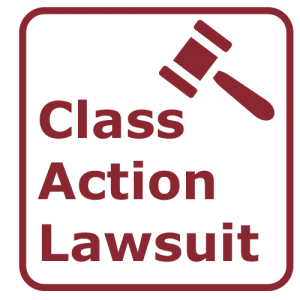BioVie Class Action Lawsuit Unveiled: Your Legal Resource
Wiki Article
Demystifying Course Action Lawsuits: A Closer Take A Look At Lawful Proceedings
Class action lawsuits can be intimidating and complex, frequently shrouded in a veil of mystery for those unknown with the legal procedures included. From comprehending the criteria for course action qualification to the role of course representatives, and from the process of class accreditation to the resolution of these claims, we will decipher the complexities and dropped light on the internal workings of this legal mechanism.Recognizing Course Activity Legal Actions
Comprehending Course Activity Claim calls for a thorough evaluation of the lawful proceedings involved in collective litigation. Class action legal actions are a sort of lawsuit where a team of individuals with comparable cases or complaints join with each other to start a legal action against a common defendant. This kind of litigation enables people with restricted resources to jointly seek justice, as it combines the stamina of several individual claims right into a solitary lawsuit.The process begins with the recognition of a lead plaintiff or course rep who files the first problem in behalf of the whole class. The court then determines whether the instance fulfills the demands for class qualification, which consist of commonness, numerosity, typicality, and adequacy of representation. If licensed, the court informs potential course members, providing a chance to opt-out if they want to seek their claims individually.
Once the course is certified, the litigation proceeds with numerous phases, consisting of discovery, motion practice, and, if required, trial. The end result of the suit can cause a judgment or a settlement, which is binding on all course participants unless they pick to opt-out. Course action claims can encompass a large range of legal issues, such as customer protection, protections fraud, work discrimination, and environmental harm.
Comprehending the nuances of course action legal actions is crucial for both plaintiffs and defendants entailed in cumulative litigation. It requires a thorough understanding of the legal demands for qualification, the legal rights and commitments of course participants, and the potential benefits and risks connected with seeking or protecting versus class activity insurance claims.
Identifying Class Activity Qualification
To figure out whether a lawsuit qualifies as a course action suit, specific requirements must be met. These criteria are created to guarantee that the case can appropriately stand for the passions of a huge team of people that have actually experienced similar damage or have been affected by the same issue. The key element in determining class action eligibility is the visibility of an usual inquiry or concern that impacts all prospective class members.Firstly, a course activity legal action needs numerosity, which indicates there should be a considerable number of potential course participants included. This guarantees that a class activity is a reliable means to resolve the insurance claims of a huge group of individuals, instead of having each individual submit an individual lawsuit.
Second of all, there need to be commonality among the cases of the possible class participants. This indicates that there should be a common question of law or reality that is central to the situation. If each potential course member's case is one-of-a-kind and unconnected to the others, a class activity may not be suitable.

The Duty of Course Representatives
Course agents play a critical role in class activity legal actions by standing for the interests of the whole course. These people are selected from within the class to serve as the public face of the legal action and are in charge of making choices on behalf of all class participants. The role of class agents includes various duties and tasks throughout the lawful procedures.
One of Assertio class action lawsuit the primary duties of class reps is to supply info and support to their fellow course members. They work as a factor of get in touch with and interaction in between the class participants and the attorneys representing them. This consists of keeping the course participants notified around important updates, answering their questions, and dealing with any type of concerns they might have.
Class agents also have the duty to actively join the lawsuits procedure (Archer-Daniels-Midland class action lawsuit). This includes working closely with the attorneys to develop lawful approaches, collecting proof, and offering testimony if required. They have to be actively associated with all aspects of the case to make certain that the most effective passions of the entire class are represented
Moreover, class representatives are accountable for authorizing negotiations or other resolutions gotten to in the claim. They should very carefully evaluate the regards to the negotiation and choose that remains in the very best passion of the whole course. This decision-making procedure needs mindful factor to consider and consultation with the class participants.
The Refine of Class Certification
The procedure of certifying a class in a class activity claim includes a comprehensive analysis of specific requirements to identify if the instance satisfies the needed demands for course qualification. Class certification is a crucial step in the lawsuits procedure as it figures out whether a suit can proceed as a course action, permitting a big team of individuals with similar claims to be represented jointly by one or a couple of people.To acquire class certification, the plaintiff must demonstrate that the suggested course satisfies certain requirements. These requirements typically include numerosity, commonality, typicality, and competence of representation. Numerosity needs that the course is so large that joinder of all members is impractical. Commonality necessitates that there are concerns of legislation or truth typical to the course participants. Typicality calls for that the insurance claims or defenses of the class reps are common of those of the class. Competence of depiction makes certain that the course representatives will relatively and appropriately shield the rate of interests of the class.
If the suggested class meets the required requirements,The court will look at these criteria and the plaintiff's proof to determine. The court might also take into consideration various other elements, such as whether a course activity is the superior method to solve the disagreement and whether the course is sufficiently cohesive.

Once the court grants course qualification, the lawsuit can proceed as a class activity, enabling the complainants to jointly seek relief and possibly receive a judgment or negotiation that benefits the whole course.
Dealing With Course Activity Claims
As soon as course qualification has actually been given, the following step in solving a class activity suit is to browse the process of litigation or settlement arrangements. Lawsuits refers to the legal proceedings in court, where the complainant's lawyer provides proof and arguments to sustain their insurance claims, and the offender's lawyer counters with their own evidence and debates. This process can include various stages, such as pretrial movements, exploration, and trial.On the other hand, negotiation negotiations involve conversations between the parties to reach a mutually appropriate resolution without going to test. Negotiation supplies may be made at any type of phase of the litigation process, and if both parties agree, a settlement contract is reached.
Final Thought
In final thought, class action legal actions play an important function in providing justice and payment to huge teams of individuals that have actually been hurt by the very same entity. By accrediting a course and assigning course reps, the legal procedure becomes extra obtainable and effective for the plaintiffs. Resolving these suits can be a facility and prolonged process, yet it is vital in holding firms answerable for their actions and ensuring fair outcomes for all impacted events.From understanding the standards for class activity eligibility to the duty of course reps, and from the procedure of class accreditation to the resolution of these suits, we will certainly untangle the details and lost light on the internal workings of this lawful system. The key factor in recognizing class action eligibility is the visibility of a typical concern or issue that influences all possible class participants.
If each possible class participant's insurance claim is unconnected and unique to the others, a class action may not be ideal.
Course agents play a crucial role in class action claims by standing for the rate of interests of the whole class.When course qualification has been granted, the next action in resolving a course activity claim is to browse the procedure of lawsuits or settlement negotiations.
Report this wiki page